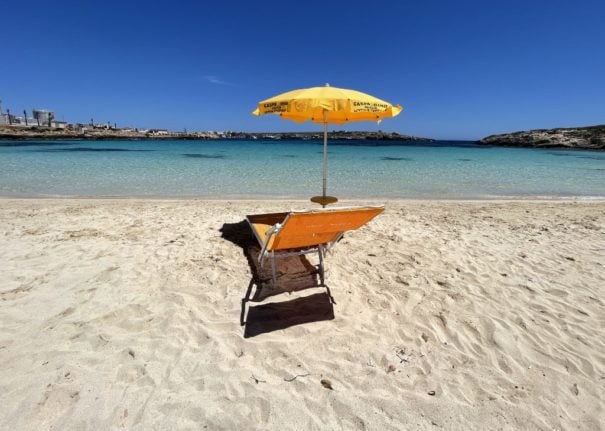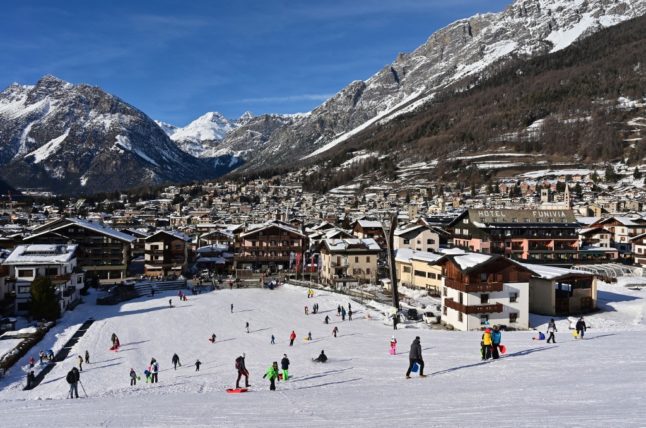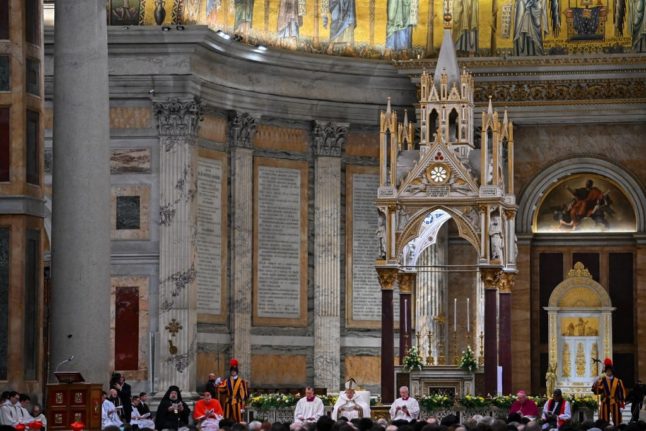Italy is known for having a relatively generous number of public holidays – the highest of any EU country other than Austria, which has 13.
Italian residents enjoy 11 national public holidays, plus a local holiday for the patron saint of their cities (for instance St Ambrose in Milan, St Mark in Venice, St John in Florence, etc.) which may also mean a day off work for some.
READ ALSO: Why do Milan residents get a day off on December 7th?
But, as some Italian speakers might say, ‘non è tutto oro quel che luccica’ (all that glitters is not gold). All national holidays in Italy are taken on the day they fall on that year rather than being moved to the nearest Monday as is the case in some countries, including the UK.
This means that if a certain holiday is on a Saturday or a Sunday, there’s no extra day off.
It also means that there are ‘good’ holiday years and ‘bad’ ones, and, while 2022 wasn’t a particularly good one – as many as four public holidays fell on a weekend day – 2023 only has one such holiday: New Year’s Day, which will fall on Sunday, January 1st.

2023 holiday calendar
- January 1, 2023 (New Year’s Day): Sunday
- January 6, 2023 (Epiphany): Friday
- April 10, 2023 (Easter Monday): Monday
- April 25, 2023 (Liberation Day): Tuesday
- May 1, 2023 (Labour Day): Monday
- June 2, 2023 (Italian Republic Day): Friday
- August 15, 2023 (Ferragosto): Tuesday
- November 1, 2023 (All Saints’ Day): Wednesday
- December 8, 2023 (Feast of the Immaculate Conception): Friday
- December 25, 2023 (Christmas Day): Monday
- December 26, 2023 (St Stephen’s Day): Tuesday
As shown by the above list, Christmas Eve (December 24th) and New Year’s Eve (December 31st) are not official public holidays in Italy, but many local companies do give their staff both days off as a gesture of goodwill.
That said, in 2023 Christmas Eve and New Year’s Eve will both fall on a Sunday, so residents will already be home from work.
Like both ‘Eves’, Easter Sunday is also not considered a public holiday, but, once again, residents are already home from work on the day given that it falls on a Sunday every year.
2023 ‘bridges’ and long weekends
Whether or not a certain year is a good one for holidays also depends on the number of ‘bridges’ available.
For the uninitiated, ‘fare il ponte‘ (‘to do the bridge’) is the noble art of taking an extra day off when a public holiday falls on a Tuesday or Thursday – the most audacious might do this with a Wednesday holiday too.
Sadly, 2023 doesn’t provide a lot of opportunities to do this. There are only two possible bridges: one for Liberation Day, falling on Tuesday, April 25th and one for Ferragosto, on Tuesday, August 15th.
But, on a more positive note, six of next year’s public holidays will fall either on a Monday or a Friday, giving residents five three-day weekends and a four-day one – Christmas Day (falling on Monday) is immediately followed by St Stephen’s Day on Tuesday.
Italian non-holiday holidays
There are seven dates in Italy’s calendar that are considered official but not public holidays, meaning you don’t get a day off.
These are known as ‘solennità civili’ (civil feasts) and include National Unity Day on the first Sunday of November, the day of Italy’s patron saints Francesco and Caterina on October 4th, and the anniversary of the unification of Italy on March 17th.

That’s in addition to nearly 30 national and international days of commemoration or celebration that Italy recognises, including Holocaust Remembrance Day (January 27th), Europe Day (May 9th) and Christopher Columbus Day (October 12th).
Much like the previously mentioned solennità civili, none of the above will get you a day off.
Other holidays
If you’re an employee in Italy, you’re entitled to paid holiday time, and the very minimum allowance is four weeks (or 20 days) a year – that’s 18 days less than in Austria, which leads the EU pack in minimum paid leave.
That said, many Italian contracts, particularly those for state employees, allow for five weeks (or 25 days) of paid leave per year.
It’s also worth noting that, by law, employees must take at least two weeks of paid leave in a row and all paid leave accumulated over the course of a year must be taken within 18 months from the end of that year.



 Please whitelist us to continue reading.
Please whitelist us to continue reading.
Member comments